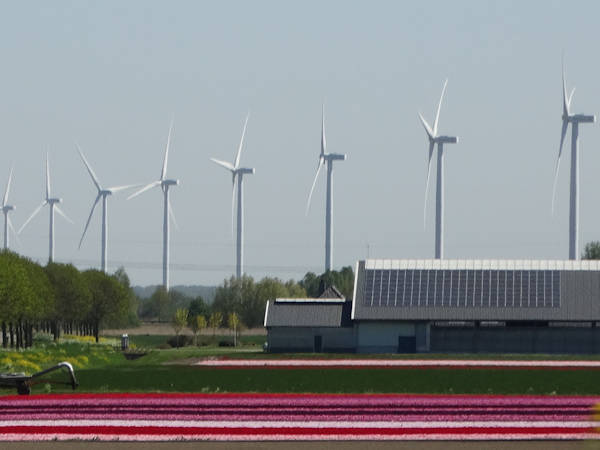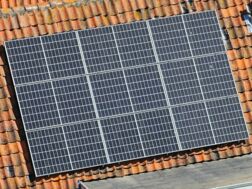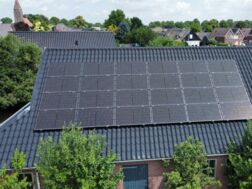The year 2022 marks an important milestone for renewable energy in the Netherlands. According to provisional figures from the Central Bureau of Statistics (CBS), the share of renewable energy in 2022 was 15 % of total energy consumption, up significantly from 13 % in the previous year.
This growth was mainly driven by significant increases in solar and wind energy consumption, while the contribution of biomass fell slightly.
Total renewable energy consumption in the Netherlands reached 277 petajoules (PJ) in 2022, 6 % higher than a year earlier. In contrast, total final energy consumption fell to 1850 PJ, down more than 7 % from the previous year, mainly caused by a sharp drop in natural gas consumption. Combining these factors resulted in the growth of the share of renewable energy.
Solar energy experienced particular growth in 2022, with a 45 % increase over the previous year, representing a total consumption of 62 PJ. This jump was mainly driven by installing new solar panels, increasing full capacity by 28 % to more than 19 thousand megawatts (MW).
Wind energy also showed a positive trend. In 2022, energy consumption from wind power increased by 13 % to 78 PJ, with onshore wind growing by 25 % to 47 PJ.
Although biomass is still the most significant contributor to renewable energy (40 %), there was a 15 % drop in gross final biomass consumption in 2022. This is partly caused by a quarter less biomass being co-fired at power plants and tightened sustainability criteria.
In 2022, we also saw an emergence of heat pumps. Although their contribution to total renewable energy is still relatively small at 7 %, there was an increase of more than a quarter in the total amount of heat extracted to over 20 PJ.
These developments contribute to the Netherlands' EU target of generating at least 27 % of total energy consumption from renewable energy by 2030. With current growth rates in solar and wind power and the emergence of heat pumps, the Netherlands is on track to reach this goal.
These figures illustrate the growing importance of renewables in the Netherlands and point to a promising future for renewable energy in the country. While the use of natural gas is declining, renewable energy sources are an increasing part of the energy mix. This is expected to continue as we get closer to the 2030 targets. These developments are a positive step for the Netherlands, contributing to national and global efforts to reduce the impact of energy consumption on the environment.





